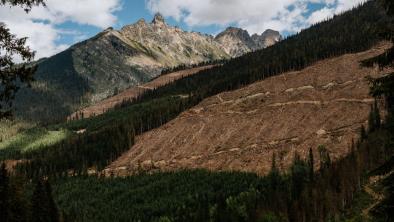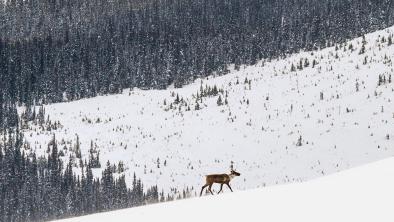Change to closed fish farms, ‘snakes’ tell feds
Campbell River Mirror

After spouting venom for two days, the “pit of snakes” gave federal fisheries officials one final option – make B.C.’s coastal fish farms change to closed-contaiment systems.
“There’s a lot of long-term resentment here,” said Anne Cameron of Tahsis. “You probably left your offices in Ottawa with a head full of idealism and then walked into a pit of snakes...you came here with a plan that already seems to be done.”
However, officials with Fisheries and Oceans Canada (also known as DFO) said they had come to Campbell River last week to consult with stakeholders, the public and other user groups about the change in governmental responsibility over fish farms.
In the new year, the federal government will assume control over all sea-based aquaculture operations, including fish farms. The changeover was ordered by the B.C. Supreme Court which ruled that fish farms are a federal responsibility.
Currently, the provincial government oversees the siting, licensing and monitoring of fish farms which typically raise non-native Atlantic salmon in open-net sea pens.
Critics and some scientists say fish farms contribute to the proliferation of sea lice which harm, or kill, young migrating wild salmon. They are also critical of fish farm escapements, the drugs used to treat farm salmon and the possible spread of infectious disease from farms to wild fish, to name a few of the many complaints.
Almost all the B.C. fish farms are run by Norwegian-based companies – Marine Harvest, Grieg and Cermaq (Mainstream) – which have Canadian offices in Campbell River. Fish farming proponents say these companies operate a billion-dollar industry in B.C. which provide jobs and tax money, and they do their best to mitigate environmental issues.
However, for many years these companies have faced pressure from opponents to change open-net sea pens into closed containment systems. The companies have conducted tests, but say closed-containment is too expensive and is not economical at this time.
“If the industry is going to operate in our territory, they must be in closed containment,” said Bob Chamberlin.
The chief of the Kwicksutaineuk/Ah-kwa-mish First Nation, has been one of the industry’s harshest critics. The majority of fish farms along the inside passage are located in the Broughton Archipelago near the Guilford Island-based band.
He attended the meetings – revolving around the Federal B.C. Aquaculture Regulation and Strategic Action Plan Initiative discussion document – and urged the feds to force fish farm companies to change to close containment systems.
“We can become a world leader with the technology,” said Chamberlin. “We send men to the moon and rockets to Mars...why can’t we do this?”
Others expressed concern the province still has decision-making powers to either expand fish farms or even provide new sites. They urged DFO to put a moratorium on such expansion until the changeover occurs, but the federal representatives said that will not happen.
“I’m disappointed that we have to tell DFO to protect wild salmon,” said one young woman.
Ross Campbell of Sonora Island expressed concern over the very short notice given for the meetings held on Thursday and Friday at the Eagles Hall. The DFO reps said there will be more meetings in the future and they will try to do better to provide advance notice.
“There’s a lot of distrust and concern about DFO,” said Campbell. “People are begging you to put real teeth into the (fish farm) policy...so it can do something to change things for the better.”


